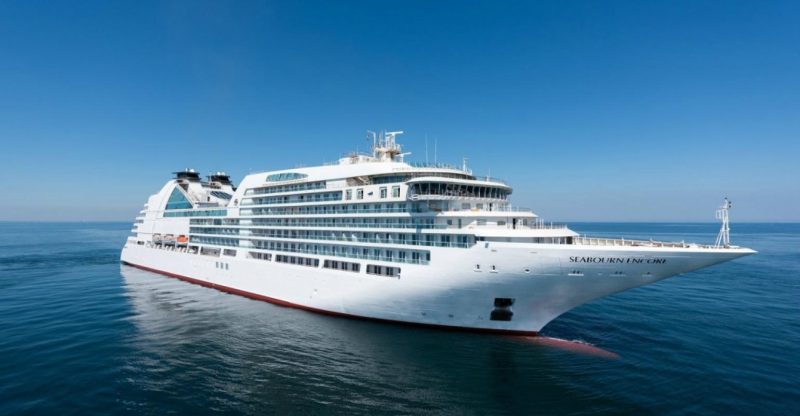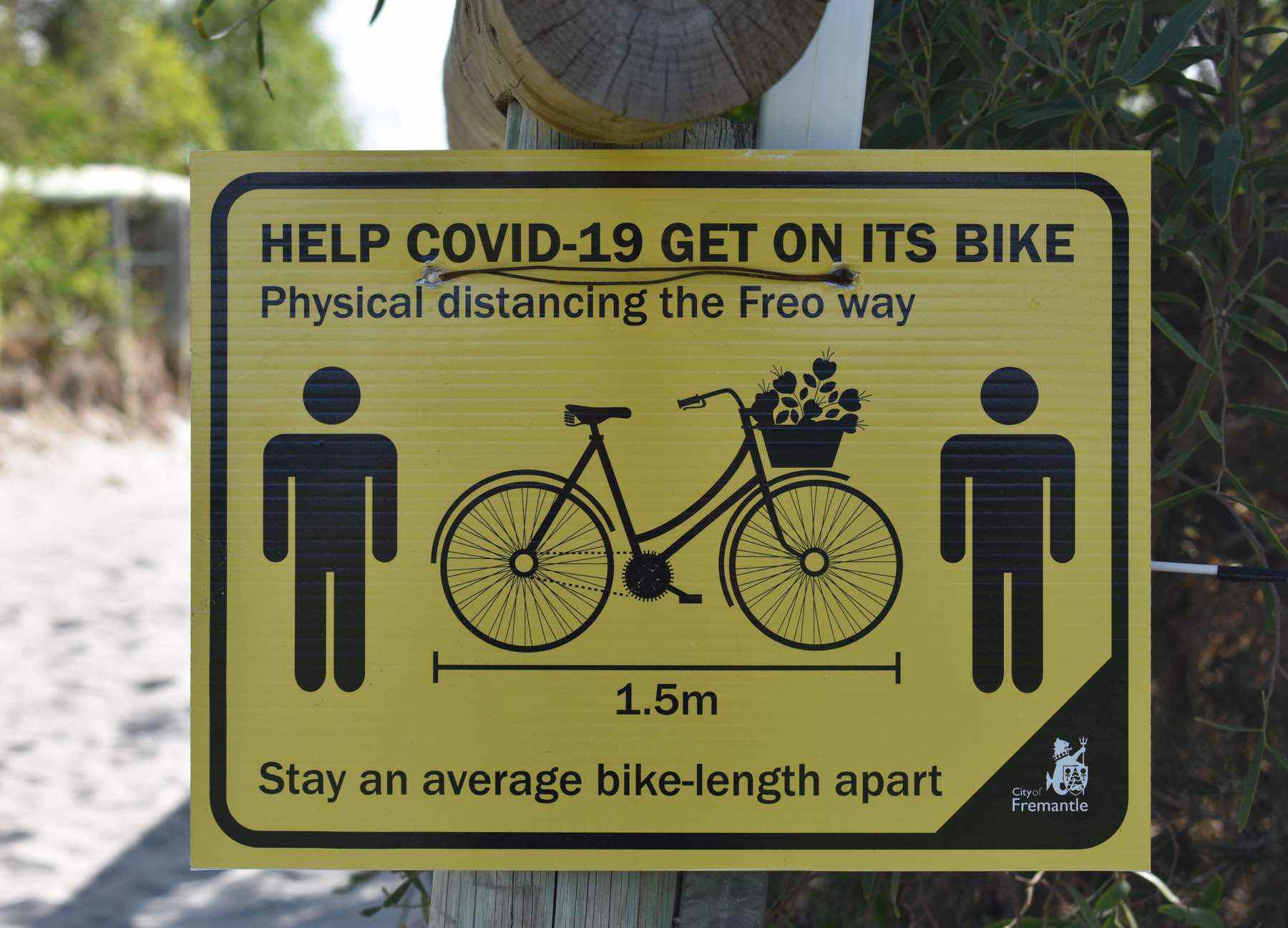In a recent statement, the Cruise Line Industry Association, CLIA, whose members include the largest global operators, addressed the covid restrictions affecting the industry in Australia and New Zealand and concluded by expressing confidence that the industry had the resilience to overcome the challenges it currently faces.
In what reads as something of both a plea, and a warning, to governments in the region and the public at large not to abandon cruising, CLIA said that –
- Cruise lines have spent decades investing and building tourism in Australia and NZ. Many communities in regional areas and South Pacific nations rely upon cruise tourism as a valuable source of income and employment. In Australia, the cruise industry contributes more than $5 billion a year to the national economy and supports more than 18,000 jobs across the country.
- Cruise lines make a substantial contribution to state and national government revenues through various taxes and fees, and help support other businesses throughout the economy including ports and destinations, local tourism operators, hotels, travel agents, food and beverage suppliers, equipment providers and other supply chain businesses.
One suspects that the cruise ship industry generally, both big and small lines, in large part will have to reinvent itself to remain relevant in a post-Covid world. At least in Australia, NZ and the South Pacific a favourable public sentiment about the pastime of cruising will have been severely dented in recent months. In many ways, rightly or wrongly, the words ‘cruise ships’ have become synonymous with covid, and death.

Seabourn Encore
As we have observed previously, and not in jest, it’s hard to imagine that cruise ships will carry the name ‘Princess’ in the post-covid period. The loss of goodwill in that name must be close to total. Maybe even negative. A renaming of ships will be on cruise line agendas, I’m sure. Perhaps – and this is only said partly in jest – Madame Curie, Macfarlane Burnet, and whoever it was who invented hand sanitiser, and people like them will soon have cruise ships named in their honour as medical researchers.
Of course, it will also be interesting to see, post-covid, how much confidence the public will be prepared to invest, readily or at all, in a range of other activities that have fallen by the wayside recently. Going to the movies; eating and drinking out at restaurants and bars; exercising at gyms; trawling around large shopping centres; flying in planes; travelling generally; hosting large dinner parties; attending large sporting events in stadiums; going to entertainment venues; engaging in internet dating; immediately come to mind.
To an extent, what we have seen during the covid shutdown, may provide some sort of guide to the future. On the face of it, the older, more vulnerable demographic – that at most risk on the statistics of dying from covid – may prove to be the most resistant to putting themselves in harms way when a new normal settles over us.
The younger demographics, those that seem to have been most willing to flout the social distancing restrictions and risk the fines, and treat the pandemic as a passing thing unlikely to affect them personally, may be expected to return to the old normal more readily than others.
These are broad generalisations, of course, but on the sort of data available from reports of public behaviour, and personal experience, they are not far-fetched.
Of all the risky activities that come to mind, from our pre-covid lives, that we might be most inclined to avoid in our post-covid lives, those things that put you in regular contact with relatively large groups of strangers, in enclosed spaces, for reasonably long periods of time, where you can’t help but touch things with your hands, would surely have to be on top of the list.
By way of example, a fairly benign one, going to the movies, even outdoors, will make many in the older demographic nervous. I say that as a person in that demographic. For a while now, pre-covid, I have actually been looking both ways, and left again, before crossing the road. Just as I taught my kids to do when they were small (and still listened to me, occasionally!). So attending a closed cinema will certainly make me think twice, or thrice, post-covid, at least for a while. All those people you don’t know. An enclosed space. An hour and a half or more together. All the things to touch on the way in, while there, and on the way out again. A bit like being on a plane, pre-covid, when someone coughed. Imagine post-covid? And do I need to go to the movies anyway? I have resubscribed to all the streaming services at home and am quite enjoying them on a large TV screen.
This going to the movies example perhaps shows up a couple of points worth bearing in mind and developing when one makes post-covid industry predictions.
PLEASE HELP US TO GROW FREMANTLE SHIPPING NEWS
FSN is a reader-supported, volunteer-assisted online magazine all about Fremantle. Thanks for helping to keep FSN keeping on!
First, it’s early days. I’m prognosticating. But only a bit.
Second, initial apprehensions about a range of activities may wear off reasonably quickly once it becomes clear the activities in question seem safe again.
Third, our commitment to some activities may have been so great in the past, that we lack the discipline in the new normal to avoid enjoying them again, whatever the apparent risks.
Fourth, peer pressure may be a factor, either way, depending on who our friends are.
Fifth, we may have adopted new ways of doing old things that we quite like, reducing our desire to do a range of things the old way.
Sixth, and importantly, I think, the extent to which particular industries are able to demonstrate to the public that all reasonable steps have been taken to significantly reduce, if not eliminate, the risk not just from covid, but from infectious diseases transmissions generally, will determine how quickly, if at all, most people will return to enjoy what many service, entertainment and leisure industries have to offer. (I can see a ‘No Covid Certification’ industry developing quite soon.) Needless to say, the heavy hand of regulation will come down on an industry if effective self regulation by good industry codes of conduct are not quickly adopted and well publicised. Perhaps existing regulation will be refined in any event. I suspect it will be. But more than that, I think people will want to know the various industries themselves have worked out exactly what more than good practice demands in the new normal, whatever the cost.
Based on these deep sociological and psychological thoughts, or ‘data’ as the academics amongst us might insist on describing these random thoughts, I’d like to offer, free of charge (but subject to appropriate credit when repeated) the following predictions about the level of acceptance various activities will find in the new normal, post-covid world:
- Movies, as discussed above. The older demographic will go, but at least for a while, not in droves. Discount Tuesdays may need to be $2 Tuesdays for a while! However, you won’t be able to stop the younger demographics attending. The older demographic though, being baby boomers in the main, and feeling entitled about most things, will find comfort in greater social distancing than in the past. But more than anything, they will expect reassurances that infectious disease measures have been applied in relation to all aspects of the operation. They will want the equivalent of the notice given at the end of most movies these days, ‘No animals were harmed in the making of this movie’.
- Restaurants and bars, similarly.
- Gyms, similarly.
- Large shopping centres, similarly, but even more so! We will all want to know the floors have been scrubbed down numerous (or as is fashionable to say these days, multiple) times a day, and all handles, counters and anything else within a child’s reach has received liberal doses of antiseptic.
- Flying. Really nervous about that. Folk had enough concern before Covid about picking up some dreaded lurgi when getting on a plane, imagine how they‘ll feel now. Whether the eventual lifting of domestic travel and international flight restrictions will produce a higher degree of confidence to fly, I doubt. Especially in the currently vulnerable demographic. The challenge for airlines will be in conveying confidence that cabins are truly disease-free zones.
- Travel. Will remain nervous about that too, especially if it involves flying, and travelling to formerly high-covid destinations, and even more especially if they don’t have Australia’s high post-covid standards.
- Dinner parties. Definitely would feel it’s not appropriate to have more than about two couples around at a time, maybe a max of six guests. (Would be prepared to host more than six though if the Dockers are playing well and it looks like we will decimate Collingwood at the next outing!)
- Sporting events. Ditto all the above. I think the feeling will be that the risks of catching covid or any infectious disease are small, compared with being at the movies or on a plane; although infectious disease experts may wish to challenge that assumption, and also point out we usually get to major events by public transport where we are packed like sardines on buses and trains. Again, reassurances about the application of strict infectious disease controls, including over food and beverage preparation and serving, will be important. (But how do you deal with entry rules for the sniffling, coughing and sneezing patrons?) The desire to be at the event will overwhelm any feelings of risk for many. (Human nature. It’ll eventually be the cause of the demise of the human race!)
- Entertainment. Ditto for sporting events.
- Internet dating. I will have to defer to reader feedback. Of less concern and interest to my demographic. Would assume it is an industry unlikely to be greatly affected post-covid. May even be a growth area. As with the sporting events, desire to engage will overwhelm any feelings of risk, for many.
PLEASE HELP US TO GROW FREMANTLE SHIPPING NEWS
FSN is a reader-supported, volunteer-assisted online magazine all about Fremantle. Thanks for helping to keep FSN keeping on!
Which brings me back to the future of the cruise ship industry, to cruising on big cruise ships of the sort that recently gave our Western Australian Premier, Mr McGowan, nightmares.
My prediction is there will be a great resistance by my vulnerable demographic to returning to cruising activities. That’s because they have represented the single greatest threat to my demographic’s lives and liberty in the time of covid. In many ways, in Australia, as I observed above, cruise ships have become synonymous with covid, and death. Dramatic, but undeniable.
I suspect memories of the covid threat will linger much longer in relation to cruising than it will in relation to problems associated with going to the movies or restaurants and bars, or entertainment venues, for example.
Cruises are usually for longer periods of time. Even when shorter than longer, you can’t really escape your fellow passengers and enjoy yourself. You are for so much of the time in enclosed spaces with others or where others have just been. It’s hard not to touch things. And who wants to be locked in a small cabin if things go wrong?
There are many moving parts in the operation of the cruise industry. If one goes wrong, the consequences can be devastating, as has regrettably been shown. Reassurances about the systems in place to control an outbreak of an infectious disease may help, but then again they were meant to be in place in the old normal. The cruise ship industry, I suspect, have a lot of work to do to get back the older, affluent – and not so affluent – demographic who take cruises for enjoyment after a busy, and often hard, working life, not for the ultimate life challenge.
All that said, I have wondered if cruise lines will reinvent themselves post-covid by largely avoiding my demographic and targeting the younger demographics, who seem far less concerned about the risk covid presents to them. Cruise lines have invested amazing sums of money in the cruise business. The enormous cruise ships, which get bigger and bigger, and fancier and fancier, by the year, plainly were designed for a largely retired and more affluent demographic. I suspect advertising agencies will, right now, be working on strategies that will have the younger demographics thinking cruise liners were in fact designed for them, for weddings, parties, anything. Winning back the traditional well-heeled, older ‘guests’ will not be impossible, but I estimate will prove harder than some may presently think.
I’m sure the CLIA member cruise lines and partners, and other operators, once they absorb the immediate frustrations flowing from covid, will be looking to respond to the challenge with hard-headed, long term thinking. They wouldn’t want to get their responses wrong, because if they do, the market will drive them completely out of business, or they will be regulated to such an extent that they might as well be. One assumes the industry as a whole is carrying a lot of debt. So they probably only get this one chance at getting things right.
So, there we are. Tough words I know, particularly for the cruise ship industry. But we are in difficult times. And once they are behind us we want all businesses to be on sure and sustainable footings.
The good news is, these are only predictions, and predictions are always made in uncertain circumstances, and in the knowledge that some, if not all, are likely to be proved wrong!










